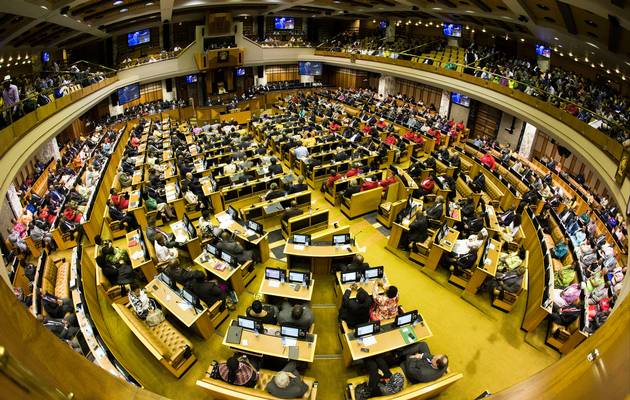The decision to vote out President Jacob Zuma in a no-confidence motion is a contested one, in which there is no “unanimity” even within the ANC and so should be held in secret, EFF leader Julius Malema has argued in court papers.
The EFF and the Inkatha Freedom Party filed papers yesterday in support of the United Democratic Movement’s application to the Constitutional Court for a secret ballot in the pending motion of no confidence against Zuma.
The EFF and the IFP are cited as respondents in the UDM’s case and have agreed in their affidavits on the need for the vote to be held in secret.
All papers must be filed by Friday and the court will determine the way forward.
In his affidavit, Malema argued that in 2008, when former president Kgalema Motlanthe was elected by parliament, the vote was held in secret because the election was contested by then MP Joe Seremane, who was put forward by the DA as an alternative candidate.
Malema referred to a Facebook post penned by ANC MP Makhosi Khoza in which she outlines the dilemma faced by party MPs. He said her post showed that ANC MPs believed they were being compelled to choose between the constitution and the “injudicious leadership” of the party, which expects them to toe the line even if it led them into a “ditch”.
“Many ANC MPs I have spoken to have said they would like the matter to be dealt with on a secret-ballot basis to enable them to express their opinions freely,” Malema said.
He argued that it was a constitutional obligation for the vote to be held in secret.
The election of the president is one of the functions of the National Assembly outlined in the constitution. Section 86(2) “specifically obliges a secret ballot in the event of two or more candidates being nominated”.
“There is no unanimity on whether President Zuma should remain as president or not. It is a highly contested question.
“It is thus a scenario comparable with that envisaged in a contested election of the president,” Malema said in the affidavit.
The power of removal of the president also resides with the National Assembly in terms of the constitution, but it does not make express statements about secret balloting.
But Malema submitted that the “power of the appointment of the president includes the power of his removal” and the same procedure was applicable.
[Source:





 WhatsApp us
WhatsApp us 

